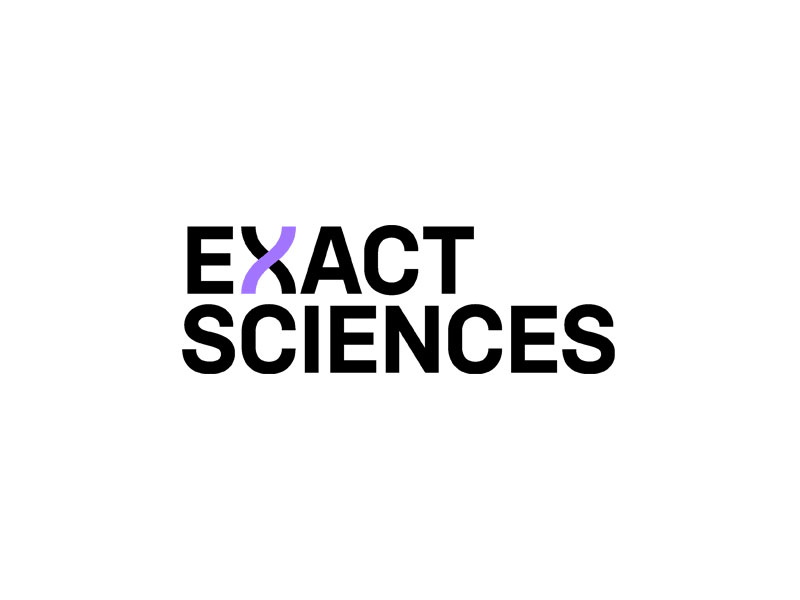Exact Sciences Corp, a leading provider of cancer screening and diagnostic tests, has officially published clinical validation data for its OncodetectTM MRD test at the 2025 American Society of Clinical Oncology Gastrointestinal Cancers Symposium.
Before we dig into the provided data, we must take into account how molecular residual disease (MRD) actually translates to the presence of tumor-specific DNA in a body. These fragments of genetic information, popularly known as circulating tumor DNA (ctDNA), eventually seep into the bloodstream by tumors, with their presence indicative of cancer.
To deal with the risk of MRD, Exact Sciences’ Oncodetect test effectively leverages proprietary capabilities in whole exome sequencing to offer a tumor-informed MRD test for a personalized approach towards detecting and monitoring residual cancer among patients with solid tumors. You see, by identifying somatic genomic alterations in tumor DNA and detecting a subset in ctDNA from blood, the Oncodetect test is able to detect ctDNA before, during, and after treatment.
Such critical information, on its part, can guide therapy decisions and monitor for cancer recurrence.
Anyway, according to certain reports, the recently-published data comes on the back of Alpha-CORRECT, a study which had one of the longest MRD surveillance monitoring periods till date. In essence, during the study, Exact Sciences’ Oncodetect test would clock 78% sensitivity at the post-surgical timepoint and 91% sensitivity during the surveillance monitoring period. Here, the specificities were found to be 80% and 94%, respectively.
Apart from this newly-published data, Exact Sciences revealed how its testing technology also achieved its primary endpoint in the Beta-CORRECT study. The results from that study would basically confirm a significant association between MRD positivity and recurrence in patients with stage III colon cancer.
Markedly enough, the stated data extends Oncodetect’s prognostic value to patients with stage II and IV colon cancer and rectal cancer. In case that wasn’t enough, these findings from the Beta-CORRECT clinical validation study even displays, like it during Alpha-CORRECT study, a promising performance of Oncodetect as an MRD test.
“There is a critical need to better understand and monitor for residual cancer following surgery,” said Takayuki Yoshino, MD, deputy director at the National Cancer Center Hospital East. “The Oncodetect test represents an exciting development in the field. I am pleased to partner with Exact Sciences, encouraged by the emerging data from the Beta-CORRECT study, and look forward to sharing further insights in the coming months.”
As for Exact Sciences’ future plans with the Oncodetect, they include providing the test to patients across United States, effectively combining 20 years of deep relationships with healthcare professionals using Oncotype DX, which happens to be a broad portfolio of oncology solutions.
Beyond this, Exact Sciences has partnered with the National Surgical Adjuvant Breast and Bowel Project (NSABP) and Flatiron Health to generate greater clinical evidence across multiple solid tumor types.
As a part of that, the company is already conducting multiple studies to strengthen evidence in colorectal cancer. The international-based CORRECT-I study and the pivotal, US-based CORRECT-II study with NSABP will assess the association between ctDNA and recurrence at specific post-surgical timepoints in patients suffering from stage II and III colorectal cancer.
All in all, these studies will further validate ctDNA’s role in colorectal cancer recurrence monitoring.
Next up, Exact Sciences is conducting a separate study with the NSABP called EXActDNA-003, which is understood to be one of the largest prospective MRD studies across all subtypes of early-stage breast cancer.
Going along that is the company’s decision to partner with Flatiron Health on a multi-year, prospective real-world study. The stated study will be integrated into routine clinical care to accelerate enrollment across a broad range of solid tumors.
“We’re thrilled to bring our MRD solution to the rapidly growing molecular residual disease market, helping more patients get access to critical, high-quality testing,” said Brian Baranick, general manager of Precision Oncology at Exact Sciences. “These data demonstrate the strong performance of Oncodetect. Building on the foundation of Oncotype DX® and two decades of trust from physicians and patients, Exact Sciences is well positioned to lead the way with its robust commercial and operational infrastructure.”


















